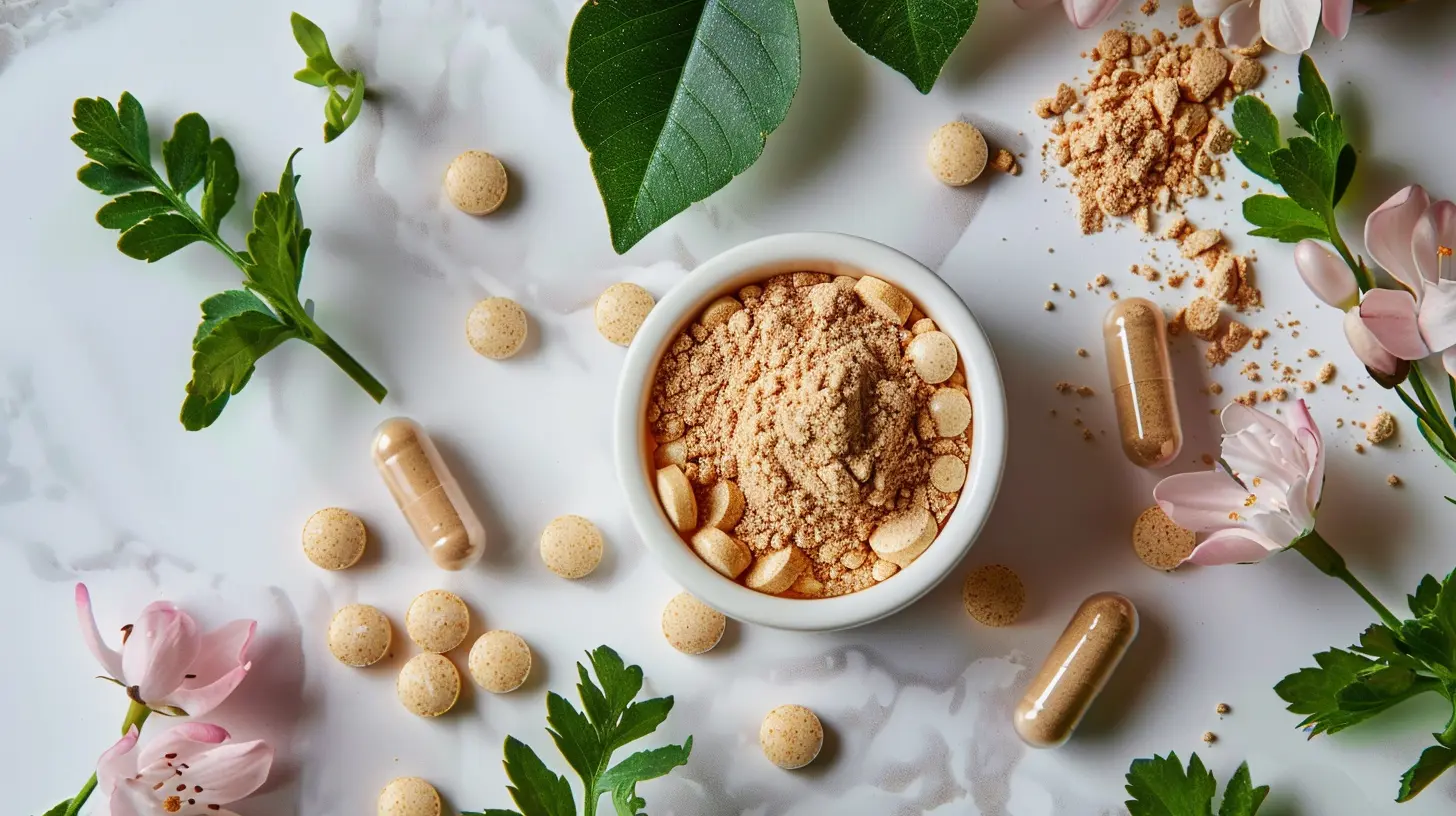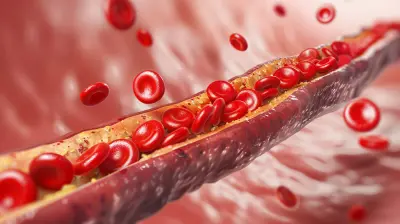13 December 2024
Are you looking to increase your chances of conceiving but want to avoid a one-way ticket to the doctor's office? You're not alone. Many women seek natural ways to boost their fertility, and the good news is—it’s absolutely doable. Your body is an incredible machine, and with a little TLC, you can support it to be in its best "baby-making" shape. From tweaking your diet to managing stress, there are countless small but impactful changes you can make. So, grab a cup of tea (or whatever your beverage of choice is), settle in, and let’s dive into some tried-and-true tips for boosting fertility naturally. 
Understanding Fertility and the Natural Approach
Before we get into the nitty-gritty, let’s start with the basics. Fertility isn't just about biology; it’s about creating the right environment for conception. Think of your body as a fertile garden—you want the soil to be rich, well-watered, and sunny, don’t you? The same goes for your body when preparing for pregnancy.Natural fertility boosters focus on optimizing your overall health because, let’s be real, a healthy you is a fertile you. It’s about addressing your mind, body, and lifestyle holistically, which will not only increase your chances of conceiving but also improve your quality of life along the way.
1. Food for Fertility: Eating Your Way to Baby Bliss
You’ve heard the saying, “You are what you eat,” right? Well, when it comes to fertility, it’s almost annoyingly true. Your diet plays a massive role in getting your body baby-ready. But don’t worry—you don’t have to survive on kale and quinoa (though they’re not bad options).Focus on Fertility-Friendly Foods
- Whole Grains: Foods like oatmeal, brown rice, and whole-grain bread help stabilize blood sugar levels and support hormone balance.- Healthy Fats: Avocado, nuts, seeds, and olive oil are amazing for promoting hormonal harmony. Who said guacamole couldn’t be life-changing?
- Protein Power: Go for plant-based protein options like beans, lentils, and tofu, or lean meats like chicken and fish.
- Iron-Rich Choices: Spinach, beans, and fortified cereals are great for maintaining healthy iron levels, which is crucial for ovulation.
What to Avoid?
Processed foods, sugar-laden drinks, and trans fats are like potholes on the highway to fertility. Limit your intake of caffeine and alcohol too—your body will thank you later!
2. Mind Your Stress: It’s Not Just in Your Head
Okay, this might sound cliché, but stress really is a buzzkill for fertility. When your stress levels are through the roof, your body goes into "fight or flight" mode and deprioritizes baby-making. It’s science!How to Stress Less?
- Meditation and Yoga: These can work wonders for calming your nervous system. Even 10 minutes a day can make a difference.- Get Outside: A walk in the sunshine can boost your mood and help balance your circadian rhythm.
- Therapy or Journaling: Sometimes, talking it out or writing it down can help you process your feelings.
Think of stress as static on a radio. The clearer the connection, the easier it is for your body to tune into its natural rhythms, including ovulation. 
3. Cycle Syncing: Working with Your Body’s Natural Rhythm
Your menstrual cycle isn’t just a monthly inconvenience—it’s literally the key to understanding your fertility. By syncing your lifestyle, diet, and exercise to your cycle’s phases, you can maximize your chances of conceiving.Breaking Down the Phases
- Follicular Phase (Day 1-14): Focus on light cardio and high-nutrient foods like leafy greens and whole grains.- Ovulatory Phase (Around Day 14): This is prime baby-making time. Incorporate antioxidant-rich foods like berries and drink plenty of water.
- Luteal Phase (Day 15-28): Focus on warming, comforting foods like sweet potatoes and soups. Avoid overexertion—your body needs rest.
Apps like Clue or Flo can help you track your cycle so you’re not flying blind.
4. The Exercise Sweet Spot: Not Too Much, Not Too Little
When it comes to fitness and fertility, you want to aim for the Goldilocks zone—not too much, not too little. Overdoing it with intense cardio can mess with your hormones, while being a couch potato isn’t doing your ovaries any favors either.What Works Best?
- Moderate Cardio: Activities like brisk walking, swimming, or biking.- Strength Training: Building muscle can help balance hormones.
- Mindful Movement: Yoga or Pilates can reduce stress and improve blood flow to your reproductive organs.
Think of your body like a car engine—it runs best when it’s well-maintained but not overworked.
5. Quality Sleep: Your Secret Fertility Weapon
Sleep is often the unsung hero of fertility. If you’re not catching enough Zs, your hormone levels can go haywire, and let’s face it, you’re probably too tired to think about anything other than crashing on the couch.Tips for Better Sleep
- Stick to a regular sleep schedule.- Create a bedtime routine—read a book, meditate, or take a warm bath.
- Keep your bedroom cool, dark, and quiet.
Good sleep is like hitting the reset button for your body. It’s essential for overall health and, yes, fertility too.
6. The Role of Supplements: Filling in the Gaps
While food is your primary source of nutrients, sometimes our diets fall short. That’s where supplements come in. But remember, this isn’t a free pass to raid the vitamin aisle—always consult your doctor before starting any new supplements.Fertility-Boosting Supplements
- Prenatal Vitamins: A good prenatal can provide essential nutrients like folic acid and iron.- Omega-3 Fatty Acids: Great for reducing inflammation and improving egg quality.
- Vitamin D: Known as the "sunshine vitamin," it’s crucial for hormone production.
- CoQ10: Helps improve egg health as you age.
Think of supplements as the cherry on top, not the whole sundae.
7. Ditch the Toxins: What’s in Your Environment?
We’re surrounded by thousands of chemicals daily, and some of them can mess with your hormones—yikes! From BPA in plastics to phthalates in fragrance, these “endocrine disruptors” can impact your fertility.How to Reduce Exposure?
- Switch to glass or stainless steel for food storage.- Use natural cleaning and personal care products.
- Avoid microwaving food in plastic.
It’s a bit like cleaning out your closet—once you get rid of the clutter, you’ll feel so much better.
8. Partner Maintenance: It Takes Two to Tango
While this article focuses on women, let’s not forget the other half of the equation. Your partner’s health plays a significant role in conception. Encourage them to follow similar guidelines—eat well, manage stress, and stay active—to improve sperm health. Love is a team effort, after all!The Bottom Line
Boosting your fertility naturally isn’t about following a rigid set of rules or achieving perfection (because who needs more pressure?). It’s about creating a healthy, supportive environment for your body to thrive. By embracing small, intentional changes to your diet, lifestyle, and mindset, you’re not just increasing your chances of conceiving—you’re setting yourself up for a healthier life overall.And remember, patience is key. Rome wasn’t built in a day, and neither is your fertility journey. Trust the process, be kind to yourself, and don’t hesitate to seek professional advice when needed.










Niva McWilliams
Thank you for sharing these valuable insights! Implementing natural strategies can truly empower women on their fertility journey. Looking forward to more tips!
April 3, 2025 at 3:55 PM